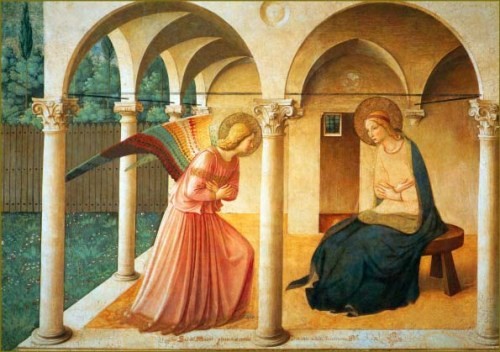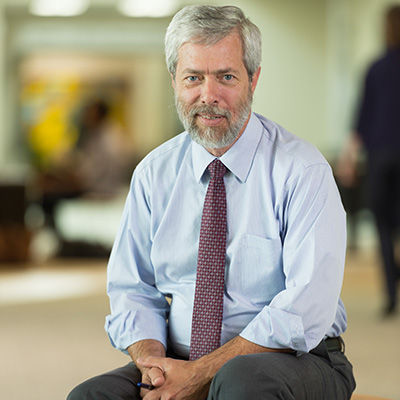The Hospitality We Offer to God
Blog Tags
We are called to be hospitable to one another and towards the stranger—the outsider. All of this assumes the hospitality of God—that is, that we “welcome one another as Christ has welcomed us.” We have known the remarkable hospitality of God towards us, and thus in turn we live out this “gospel” in our relationships in community and in our engagement with our world. But there is another dimension of hospitality that we should not miss: we are also invited to be hospitable to God.
This is really quite something—to think that in the providence of God we are in a position where God, the very one who created all things and thus created us, now waits on us with the open question: will we welcome God into our lives?
No exchange quite captures this so powerfully as the encounter that Mary, the mother of Jesus, has with the angel Gabriel—the event known as the Annunciation. Gabriel comes to Mary with an announcement, but it is also an invitation to Mary to welcome the Christ-child into her womb and thus be the vessel for God’s redemptive purposes in the world. This is beautifully portrayed in a brief segment of W.H.Auden’s “For the Time Being: A Christmas Oratorio.” The segment is entitled “Annunciatio,” and in it, Gabriel says:
Since Adam, being free to choose,
Chose to imagine he was free
To choose his own necessity,
Lost in his freedom, Man pursues
The shadow of his images:
To-day the Unknown seeks the known;
What I am willed to ask, your own
Will has to answer; child, it lies
Within your power of choosing to
Conceive the Child who chooses you.
This scene has been portrayed in an extraordinary series of paintings—European, American and Asian. One of these, by the 15th century Florentine painter, Fra Angelico, helps us appreciate that while this is an invitation from the “outside,” it is not something that is imposed on Mary. It is truly an invitation: will Mary, as Auden puts it, choose the one that chooses her?

What the Christian spiritual and intellectual tradition has highlighted is that Mary is the first disciple—the first to say “yes” to Jesus: to welcome Jesus into her life, her world, or, as we learned it as children, to welcome Jesus into our hearts. We sang:
Into my heart, into my heart,
Come into my heart, Lord Jesus;
Come in today, come in to stay,
Come into my heart, Lord Jesus.
This is the annual call and invitation of Advent, as we move towards the celebration of Christmas, the arrival of the Christchild, the response of the shepherds, and then later, the response of the magi from the East. We affirm again our own radical welcome to Jesus: come into my heart, Lord Jesus.
Our hospitality then extends to the one who was the very means by which Jesus was incarnated within Mary: the Holy Spirit. We say, “Come, Holy Spirit, come”; we say, “Welcome, Holy Spirit.” We receive the gift of God’s Son and do so in the grace of the Spirit. That is, our disposition towards God—Father, Son and Spirit—is one of eager receptivity. Even as God has been hospitable towards us, we now in turn, receive God into our lives, our world, and our circumstances, in all our sorrows and joys.

